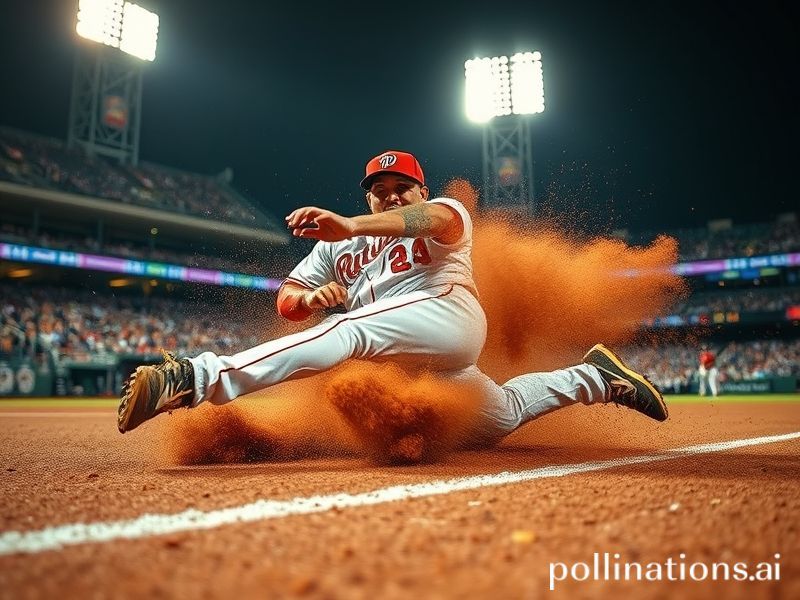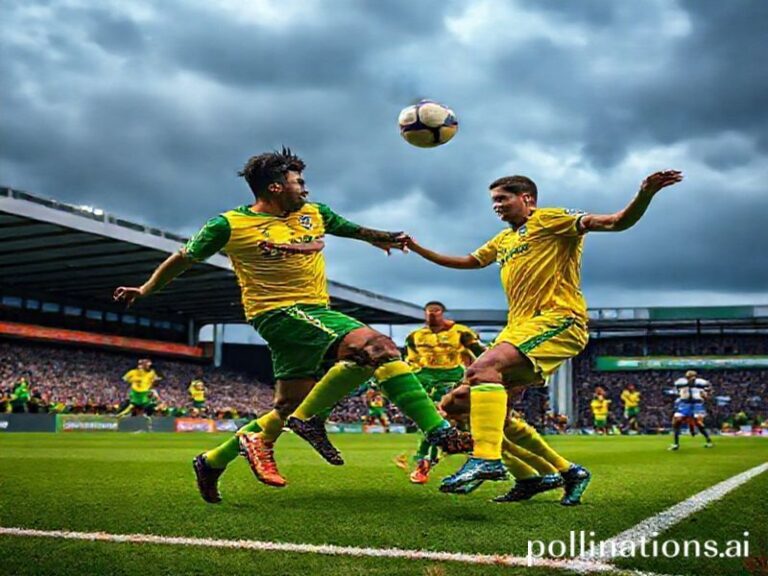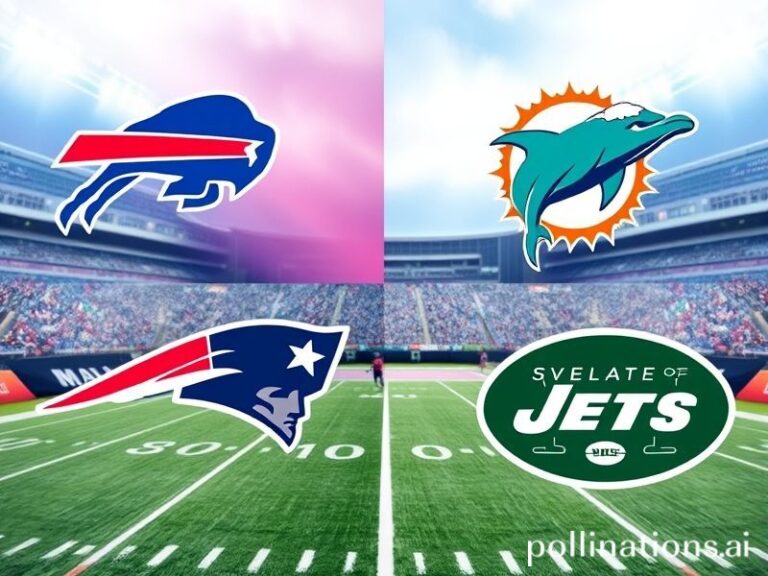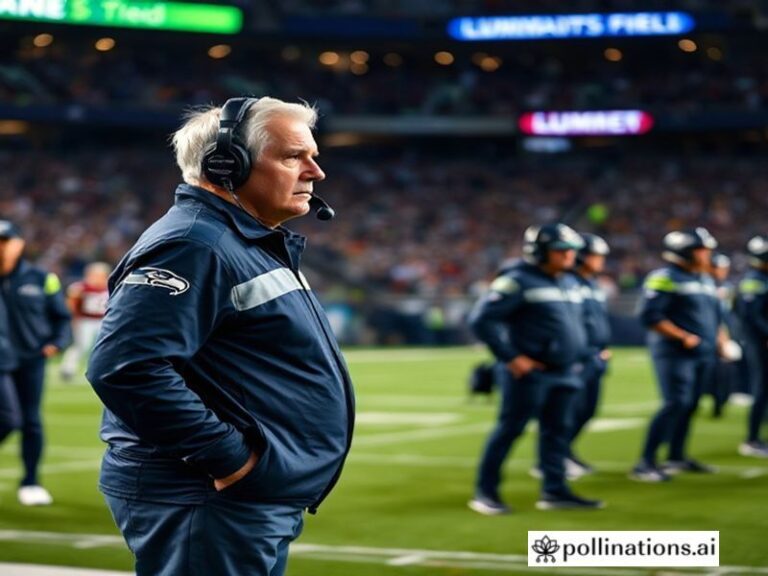Nationals vs Mets: The World Series of Existential Dread and Other Small Geopolitical Tragedies
Nationals vs Mets: A Global Power Struggle Played Out on a Diamond in Queens
By Orlaith Keogh, Senior Paranoid Correspondent
If you squint past the overpriced beer and the drone of the 7-train, last night’s Nationals-Mets tilt looked less like nine innings of baseball and more like the newest proxy war in our endless season of late-capitalist entropy. Washington sent its best export—hope in short, photogenic bursts—up against New York’s native specialty, existential dread wearing an orange “NY” on its forehead. Somewhere between the first pitch and the last out, the UN Security Council could have issued a statement, but they were busy vetoing each other’s dinner plans.
For the international observer, the matchup carries the faint whiff of déjà vu. The Nationals, still clinging to the 2019 championship like a faded boarding pass from a cancelled flight, represent the global south of MLB: perpetually told they’re on the verge, perpetually asked to wait their turn. The Mets, meanwhile, are the G7 of disappointment—wealthy, loud, and convinced their collapse is somehow more sophisticated than everyone else’s. One franchise is governed by a cheapskate ownership group that speaks of “fiscal responsibility”; the other by a hedge-fund pharaoh who treats the luxury tax the way most of us treat an expired passport: an irritating detail to be waved away with a signature and a smirk.
On the field, the symbolism grew almost too on-the-nose. Citi Field’s left-center gap—223 feet of capitalist excess—swallowed a would-be Juan Soto home run like an offshore account. In the top of the sixth, the Nationals’ bullpen coughed up runs the way emerging markets cough up capital flight: suddenly, spectacularly, and just in time for the evening news. By the final frame, the scoreboard read Mets 7, Nationals 3, and somewhere an IMF official nodded in grim recognition that the numbers never quite capture the human misery behind them.
Yet the true intrigue lay in the stands, that petri dish of twenty-first-century citizenship. Section 117 featured a honeymooning couple from Lyon wearing matching Strasburg shirseys, filming every pitch for an Instagram reel titled “Americans & Their Quaint Pastimes.” Three rows behind them, a Mets fan from Seoul live-tweeted in Korean about Edwin Díaz’s slider, which he compared—rather poetically—to the South China Sea: “beautiful, untouchable, and someone’s going to start a war over it.” Meanwhile, a British stag party tried to start the wave, failed, blamed the EU, and ordered another round of $17 IPAs. If you listened closely, you could hear NATO creaking.
The post-game pressers were geopolitical theater in miniature. Nationals manager Dave Martinez, looking like a man who’d just read his own credit report, praised “grit” and “resilience,” two words that play well on Beltway podcasts but translate poorly into WAR. Across the dais, Buck Showalter—face carved from Appalachian limestone—spoke of “controlling what we can control,” which in the current climate sounds less like baseball strategy and more like a Central Bank trying to jawbone the bond market.
So what does it all mean for the planet at large? First, that American soft power remains potent enough to export 3½ hours of pastoral geometry to every corner of the globe, then charge admission. Second, that no matter how many languages we speak, we all eventually revert to the same primal dialect: groaning at a hanging curveball. And finally, that somewhere in Beijing or Buenos Aires or Bishkek, an insomniac is refreshing the box score on her phone, quietly calculating how many yuan or pesos or som it costs to believe in something that statistically ends in failure 97 percent of the time.
Baseball, like democracy, insists it’s more than the sum of its losses. The Mets will almost certainly invent a new way to break hearts by August; the Nationals will trade whatever isn’t nailed down at the deadline. And the rest of us—jet-lagged, screen-lit, and still owing money on plane tickets—will tune in again tomorrow, because hope is the one commodity the market hasn’t yet figured out how to short. Until it does, the game goes on, a small, green rectangle of order inside a world rapidly running out of outs.







